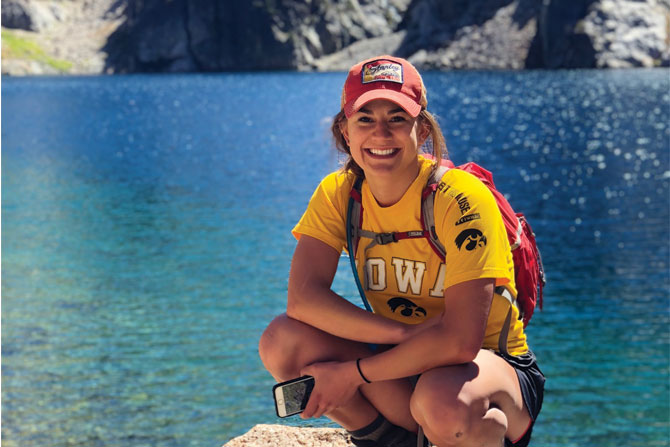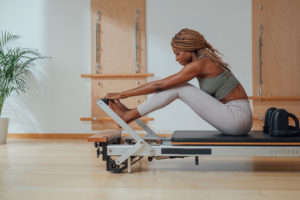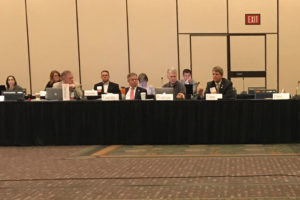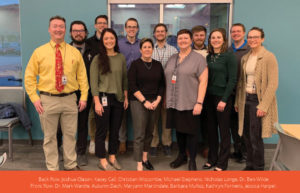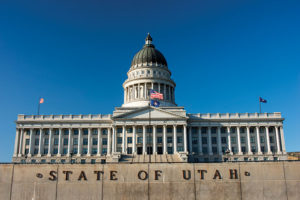By UAFP
To start, tell us a little bit about yourself and your background — where you grew up, went to school, your family, interests, hobbies, etc.
I grew up in Sioux City, Iowa, with my older brother, my parents and several dogs. As a family, we spent a lot of time outside playing various sports. Weekends were split between my brother’s baseball games and my soccer games. As I’ve grown older, skiing, hiking, and camping have taken the place of organized sports for the most part, although I play on intramural teams when possible. I spend most of my free time pursuing outdoor activities and catching up with friends and family.
When did you become interested in science and medicine?
I always enjoyed learning, and I found the sciences, particularly those related to the human body, to be deeply interesting. A career in medicine was always on the radar. However, I took time off after graduation from the University of Iowa to further explore my interests. At that time, I worked as a nursing assistant and traveled abroad when possible. I’m grateful for that period, because my time as a nursing assistant taught me a lot about the patient experience and the health care system, while my time traveling taught me a lot about myself and what I needed to be content. Through both of those experiences, I realized that the ideal position for me would challenge me, allow for plenty of social interaction, and position me to use my skills to benefit others.
Tell us about your journey that took you to medical school:
I graduated from the University of Iowa with a B.A. in psychology and a B.S. in human physiology. I then went on to pursue my MPH from Des Moines University. Between my formal education and my work as a nursing assistant, I was provided multiple perspectives of health care. I grew to better understand the factors affecting health and wellness, from societal to psychological factors. I thoroughly enjoyed my coursework, which strengthened my desire to continue pursuing a degree in medicine. More importantly, I realized how much I enjoyed working as a member of the clinical team and working closely with patients.
What was it that drew you to Rocky Vista? How has your experience been with the program overall?
I actually stumbled upon Rocky Vista-Southern Utah very serendipitously. During my travels, I happened to drive through Utah and instantly fell in love with the red rocks and wide-open space. I convinced some friends to come back out and explore all of the national parks with me in the two summers preceding my application to medical school, and so my feelings toward the state only grew stronger. I had high hopes coming into the interview, and RVU-SU did not disappoint. I noticed the students seemed very close to one another and very happy. Between the atmosphere, the COMLEX scores, the format of the curriculum, and the beautiful surroundings, I was sold.
Since then, RVU has not disappointed. The sense of community is extremely strong, the faculty and staff are kind and knowledgeable, and my free weekends are spent traveling around the Mountain West to hike. It has been everything I could have asked for in my medical education, plus more.
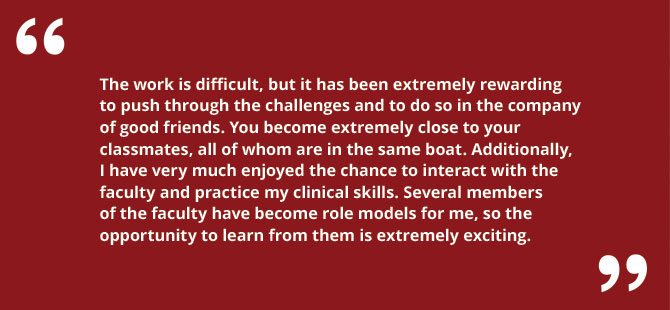
What are the best aspects of medical school? The most
challenging?
As you may be able to tell already, I have really enjoyed my medical school experience thus far. The work is difficult, but it has been extremely rewarding to push through the challenges and to do so in the company of good friends. You become extremely close to your classmates, all of whom are in the same boat. Additionally, I have very much enjoyed the chance to interact with the faculty and practice my clinical skills. Several members of the faculty have become role models for me, so the opportunity to learn from them is extremely exciting.
However, the dedication required throughout medical school can be draining. There have been several occasions where I have really struggled to adjust to the constant grind. As someone who studies best alone, it can begin to feel isolating. The stress and isolation together can become a heavy burden to bear. That is when those relationships mentioned above with other members of the RVU community have become especially valuable. I have had several peers and professors who took the time to help me through those rough moments, and I am immensely grateful for them.
How has it been adjusting to doing classes online due to social distancing?
A large portion of our curriculum has always been available online, so the classwork itself has not changed much. However, I miss interacting with my peers, my professors, and the rest of the staff at RVU-SU. As an osteopathic student, specifically, going without labs has been difficult. But on the bright side, all of this time at home has allowed me to pick up new skills. I am currently working on learning to juggle. I may need a few more months of social isolation to achieve this goal, but I’m closer than I was two months ago.
You’ve taken on a leadership role in family medicine in your program at RVU. Tell us a little bit about that experience. What are the aspects about family medicine that interest you the most?
I became involved with the Student Association of the American College of Osteopathic Family Physicians (ACOFP) early in my medical career, acting as OMS-I Representative my first year and Chapter President my second year. I chose to do this for a couple of reasons. I knew I was interested in future leadership within the field, and so I felt it necessary to gain experience early. In that regard, my skills have grown immensely. I’ve learned how to delegate, organize a group behind a cause, and effectively and efficiently run meetings and events. Membership in our chapter of the ACOFP led to additional leadership opportunities at the national level, as well as scholarships/awards for myself and our chapter.
I chose the ACOFP, specifically, because family medicine/primary care excites me! I had the same family physician for roughly 18 years. He cared for not only me but also my brother and my parents. I loved the idea of getting to know a patient, as well as their family and their overall background. Over the years, I grew to trust him, confide in him, and take direction from him (even throughout my teenage years). Health is an extremely personal matter, and I think a trusting relationship between a provider and a patient forms the foundation of effective primary care and strengthens the ability of a provider to impact a patient’s well-being. As I grew older and talked to other people, I realized that not everyone had that elationship with their physician, and so I hoped to shed light on the potential for other medical students. I think primary care offers a perfect opportunity to provide preventive care and impact the well-being of the community one patient at a time. I’m acutely aware of the importance of that role, as well as the shortage of primary care physicians, so I thought the ACOFP was a perfect fit for me.
Where do you hope to complete your residency? Where and what kind of practice do you hope to go into? Why?
I ponder these questions all of the time, and truth be told, I don’t have it all figured out yet. I am confident that I would like to pursue a career in primary care, but there are a multitude of settings within which I could practice. I am confident that throughout rotations this year, I will receive the training necessary to delineate my residency interests further.
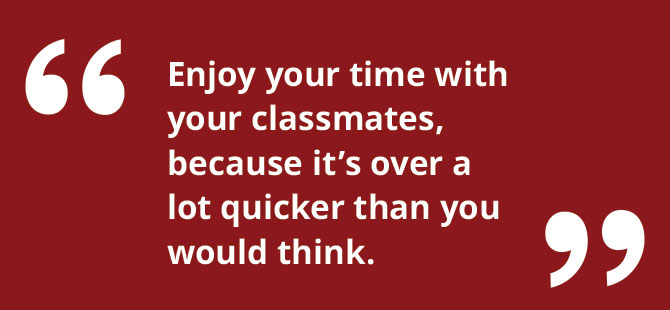
If you could give one or two REALLY valuable pieces of advice for first-year medical students, what would you tell them?
As my second year comes to a close, and I prepare to move into the next phase of my education, I’ve come to realize a lot of things I will miss about my first two years. Classes are tough, but you’re struggling alongside all of your peers, and that shared “misery,” of sorts, brings people together. Enjoy your time with your classmates, because it’s over a lot quicker than you would think. On the same note, know that when you’re struggling, you aren’t alone. It’s tough for everyone, and everyone reacts to the pressure in different ways. Impostor syndrome is real, and it can make it very difficult to confide in others, but every time I’ve taken that chance, my relationships have grown stronger, and I’ve felt much better as a whole. Make time for others and enjoy that time. Lean on them in times of need, and be there to return the favor. Every phase of life has associated challenges and triumphs. While the first two years of medical school present immense challenges, they also provide the opportunity for incredible growth, professionally and personally. Enjoy it!
By UAFP
This story appears in Issue 1 2020 of the UAFP Journal.

